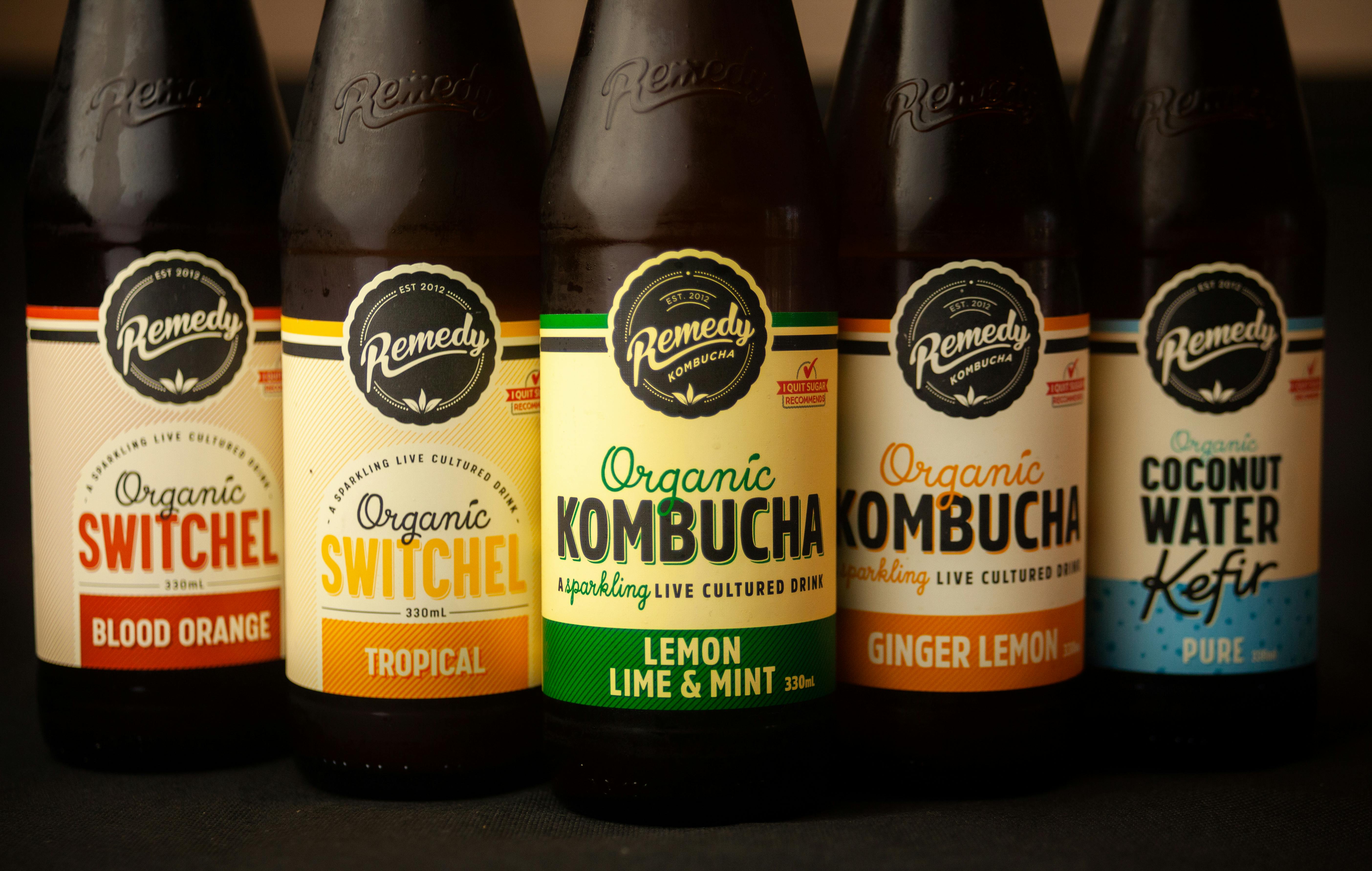Fermented Food Fails: The 9 Gut-Health Trends That Don't Work for Everyone
If you’ve tried adding sauerkraut to your salads, sipping kombucha after lunch, or working through tubs of probiotic yogurt—only to feel nothing has changed (or you feel even worse)—you’re definitely not alone. The world of gut health is booming with buzz about fermented foods and their magic-making microbes, but in real life, digestion is never that simple. It’s natural to feel overwhelmed or even frustrated if these popular foods don’t transform your well-being like you’ve read or heard. The truth is, every gut is as unique as a fingerprint, shaped by genes, history, and daily choices. What works wonders for a friend or expert on social media may not click for you—and that’s absolutely okay. The path to better digestion or balanced energy isn’t a straight line, and there’s real wisdom in noticing when trendy foods leave you feeling off. That’s why we’re exploring 9 top fermented food trends that don’t work for everyone. With science, gentle humor, and the belief that self-knowledge is power, let’s validate your experience and find some clarity. Your gut health is worth honoring in your own unique way.
1. Gut Health Isn’t One-Size-Fits-All

Gut health isn’t just a trend—it’s a vast, complex world happening inside each of us. Scientific research tells us that every person’s gut microbiome is uniquely shaped by their genetics, history, environment, and daily choices. That means a plate of kimchi or a bottle of kefir might do wonders for someone else, but your results could look completely different. Some folks rave about extra energy or smoother digestion. Others might feel no change or, in rare cases, develop new tummy troubles. If your gut hasn’t responded to fermented foods like you expected, you’re not failing—your body is just being honest. As Dr. Jindal reminds us, these foods can be helpful, but they’re not magic. It’s all about finding what’s right for your own system. Rather than chasing a one-size-fits-all miracle, celebrate your unique experience and tune into your body’s signals. Stepping away from comparison is an act of self-care, not defeat.
2. Strain Mismatch: Probiotics Aren’t Universal

If you’ve ever stood in front of the yogurt shelf, eyes glazing over at all the strains and health promises, you’re not alone. Probiotic bacteria aren’t all created equal—different strains can have different effects, and the wrong match might leave you with little benefit or extra gas. Most people just grab what sounds healthy, but science shows that matching a probiotic to your individual needs can make a huge difference. For example, a strain that helps with one type of digestion may not touch another. Personalized gut tests are starting to appear, but they aren’t mainstream yet—and not everyone needs them. The takeaway? Picking probiotics blindly is a lot like trying a random key on a lock. Trust your gut if something feels off, and remember, there’s no shame in experimenting to find what fits. Small steps and honest observation will always serve you better than one-size-fits-all labels.
3. SIBO Complications: When Fermentation Makes It Worse

For those living with Small Intestinal Bacterial Overgrowth (SIBO), the world of fermented foods can be a minefield. While many are told that more “good bacteria” will solve their problems, SIBO is an example where the standard advice can backfire. Adding bacteria-heavy foods may worsen symptoms, leading to bloating, belly pain, or discomfort. Medical research explains that SIBO shifts the balance of bacteria into the wrong place, so extra probiotics or fermented foods can fuel the problem. If you notice your gut gets grumpy when you try these foods, it’s worth pausing and checking in with a healthcare professional. Gentle progress, careful observation, and sometimes specific testing are more helpful than powering through discomfort. You’re not missing out—your body may just need a different route to comfort and balance.
4. Histamine Intolerance: Fermented Foods as Triggers

Does a forkful of tangy sauerkraut or a slice of aged cheese give you headaches, itchy skin, or a wave of fatigue? You might be dealing with histamine intolerance—a lesser-known reaction that can make fermented foods feel more foe than friend. Fermented favorites like kimchi, kombucha, and aged cheeses are extra high in histamines, naturally formed during the aging and fermenting process. While many people have no problem, those with sensitivities can find their symptoms flare after eating these foods. It’s not about willpower or missing out; your body’s response is simply asking for a different approach. If you suspect histamines are to blame, try tracking symptoms and talking with a provider about alternatives. Remember, there’s no universal gut fix—just learning what helps you thrive, one experiment at a time.
5. FODMAP Trouble: IBS and Fermented Foods Clash

If you live with irritable bowel syndrome (IBS), your relationship with fermented foods might be… complicated. Many trendy picks, like kimchi, pickled vegetables, or bubbly kombucha, are high in FODMAPs—a group of fermentable sugars that can spell trouble for sensitive guts. IBS flares might include cramping, gas, or urgent trips to the restroom after enjoying what should be a gut-healthy snack. Dietitians recommend tracking which foods set off symptoms and turning to FODMAP-friendly fermented options when possible. Your path may look different from anyone else’s, and that’s OK. Listening to your system is a sign of self-awareness, not failure. If your favorite health trend isn’t giving you the comfort or results you hope for, your body’s cues are always worth honoring.
6. Kombucha: Not Always a Gut Hero

Kombucha’s reputation as a “gut health elixir” is everywhere, but what works great for some can cause problems for others. While rich in probiotics, kombucha often comes with a surprise load of sugar, traces of alcohol, or—in home brews—risk of contamination. Some people find their stomach rumbles or their head aches after just a glass or two. If your gut rebels instead of cheering, know it’s not an uncommon story. Commercial recipes vary, and your body may simply prefer different sources of friendly bacteria, or none at all. It’s okay to step away from the hype and skip this trend altogether if your own wellness points in a different direction. Trust your gut; it knows what it needs.
7. Commercial Products: Missing the Good Bacteria

Not all yogurts, pickles, and sauerkrauts are created equal, especially if you’re buying them at the supermarket. Many commercial options are pasteurized to increase shelf life, which may wipe out the live, beneficial cultures that make fermented foods special. Sometimes, a product’s attractive packaging or “probiotic-rich” claims don’t match what’s actually inside. If you’re eating these foods but see no changes, it could be that the live bacteria just didn’t make it to your fridge. If safety and live cultures are a priority for you, look for “raw,” “unpasteurized,” or “live cultures” on the label—or consider reputable, small-batch options. The important lesson? More processing can mean fewer benefits. Stay curious and don’t be hard on yourself if a store-bought shortcut didn’t transform your gut after all.
8. More Isn’t Always Better: Moderation Matters

It’s tempting to double down on good habits, but fermentation fans beware—more isn’t always better. Overloading your digestive system with too many new bacteria at once can lead to bloating, gas, or emergency dashes to the bathroom. Nutrition experts suggest starting small and slowly increasing your intake, rather than going all in from day one. Your gut needs time to adjust; listening to your body’s reactions is a form of self-respect. If you feel uncomfortable, ease off and remember, steady changes build lasting results. Moderation isn’t failure—it’s wisdom in practice. Every progress counts, and only you know what truly feels right for you.
9. Out of Context: Culture and Diet Matter

Many beloved fermented foods come from centuries-old traditions where they complement specific diets and lifestyles. Arctic communities ferment fish alongside particular non-fermented dishes; Eastern Europeans pair sauerkraut with hearty, grounding meals. When we lift these foods out of context and try to make them the star of every meal, their benefits might not translate the same way. Sometimes, your own digestive comfort depends on honoring what fits best with your habits, preferences, and roots. If a cultural “superfood” just isn’t meshing with your menu or feels off in your body, it’s not a failure—it’s a sign of wisdom and adaptation. Eating well is about finding harmony in your own context, not forcing yourself into someone else’s idea of health.
Your Gut, Your Story: Moving Forward with Confidence

Your journey toward gut health isn’t measured by how many jars of kimchi you eat or whether you love kombucha—it’s about learning, growing, and honoring your own body’s messages. Trends come and go, but your lived experience is where the real wisdom lies. If a so-called miracle food leaves you uncomfortable or unchanged, there’s no failure—there’s just information, and an opportunity to try something new. Remember, bodies are wildly diverse, and the research agrees: gut health isn’t a one-way street. Celebrate what works for you, and give yourself full permission to step away from trends that don’t feel right. The most meaningful wellness path is the one that fits your life, honors your body, and moves at your pace. Keep trusting yourself, showing patience, and seeking knowledge—your gut (and spirit) will thank you for it.
